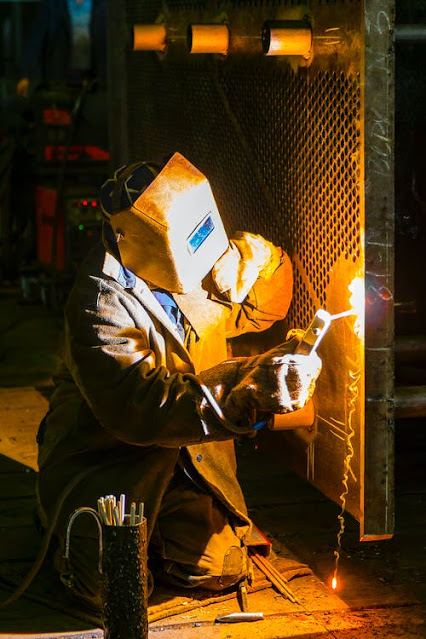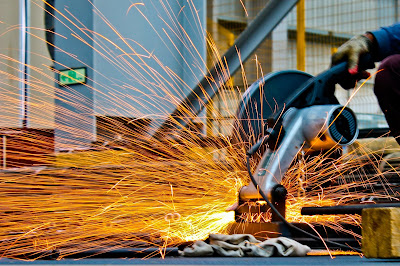Stainless
steel is an alloy of iron that has a minimum of 10.5% chromium. Chromium
produces a thin layer of oxide on the surface of the steel known as the
'passive layer.' The chromium oxide layer allows the steel to be
corrosion-resistant, creating a tough and invisible surface. Stainless steel is
used in a variety of manufacturing equipment such as kitchenware, aerodynamics,
healthcare and construction.
These are the six advantages of stainless steel for fabrication projects:
1. Corrosion Resistance
If you are interested in selling rust-free products, stainless steel can be a great choice. Stainless steel is resistant to corrosion, which has an impact on the overall value and long-term investment. Chromium allows the steel to remain resistant to corrosion in a variety of environments, including acidic, alkaline, and chlorine environments. The lower grades of alloy are considered to be best for use in wet applications. Whereas, a higher alloy grade is a better option for use around acid and alkaline solutions.
2. Maintenance Free
The long-term value of working with stainless steel is much more than its initial investment. You should always take the life cycle cost into consideration while making any decision. It is better to choose a steel maintenance free product like stainless steel for your project as it enables you to focus on a great process and product.
 |
| master steel |
3.
Resistance To Extreme
Temperatures
4. Suitable For Use in Hygienic Products
Stainless steel has a high level of hygienic properties. The flat surface of stainless steel prevents bacteria from breeding and is very easy to keep clean and maintain. It is an ideal choice for applications with high standards for sanitary conditions, such as commercial kitchens, pharmaceutical research or food and beverage processing.
5. Ease of Fabrication
It can be challenging to work with stainless steel if your fabricator is making use of outdated equipment. With the use of modern equipment, stainless steel can be cut, welded, stamped and tooled during the fabrication process. If the fabrication process is carried out under professional supervision, stainless steel can be cut, weld, bent, machined, assembled and simply produced using current machining and tools.
6. Strength
Stainless steel has natural strength and can withstand shocks at severe temperatures. It is preferred in the aviation industry because of its excellent strength-to-weight ratio. Stainless steel is a natural material that is recyclable, long-lasting and environment-friendly. If your company is concerned about the environmental impact of your manufacturing efforts and products, using stainless steel is a great way to reduce this impact.
Wrap Up-
Stainless steel is one of the most popular choices for use in a variety of applications. It is crucial to do your research when choosing stainless steel fabricators for your project. You should choose a highly experienced fabricator, who has the best skills to deliver a quality product.

Comments
Post a Comment